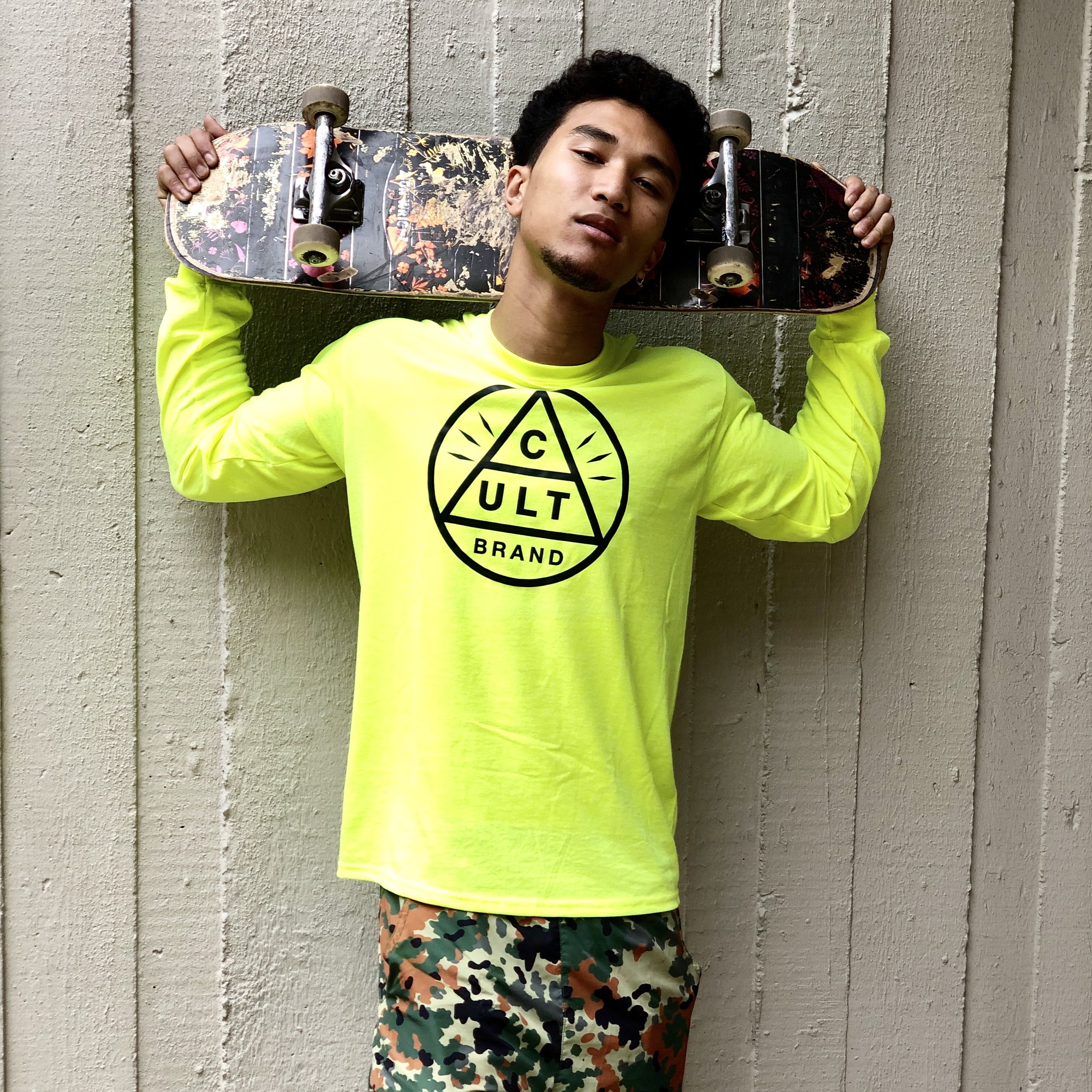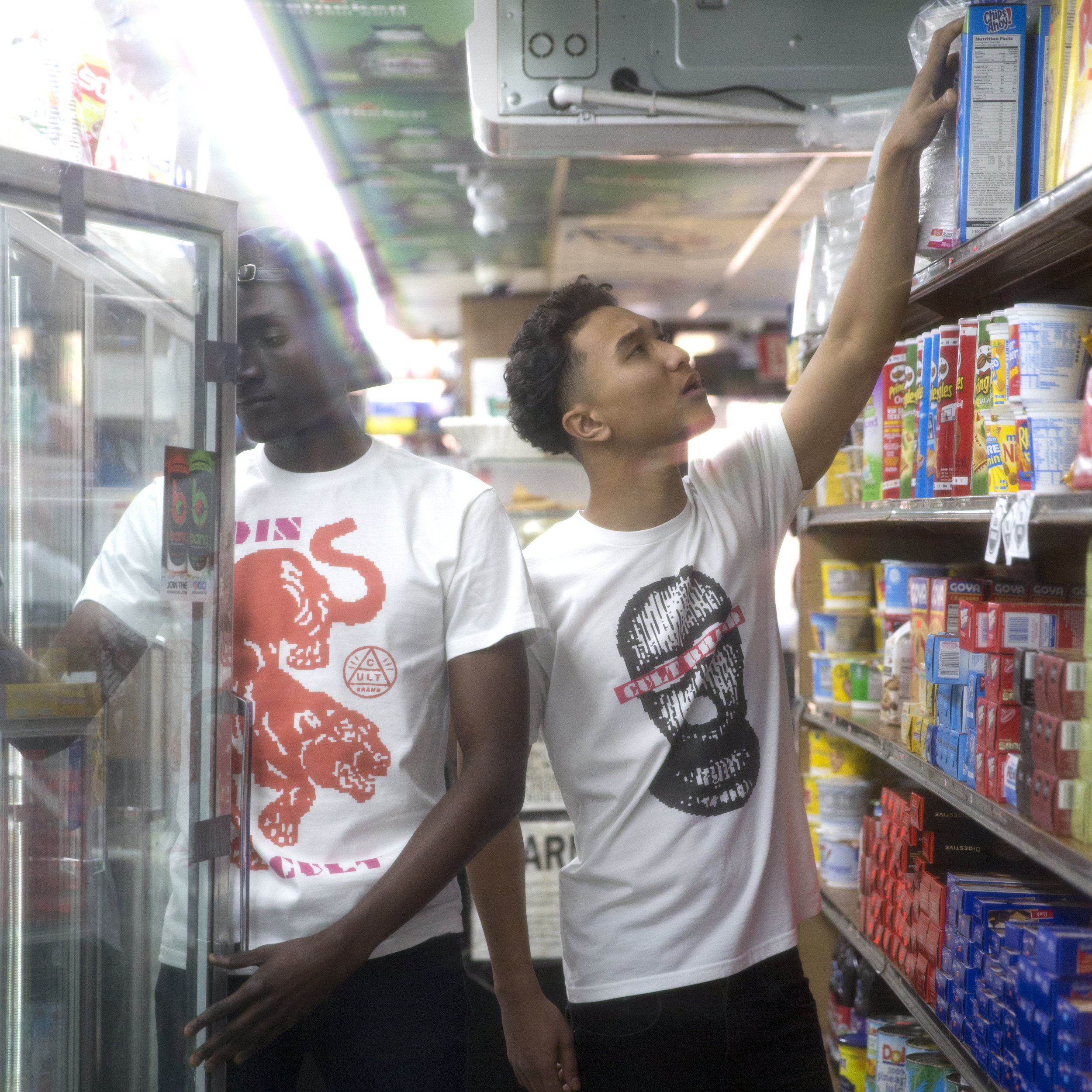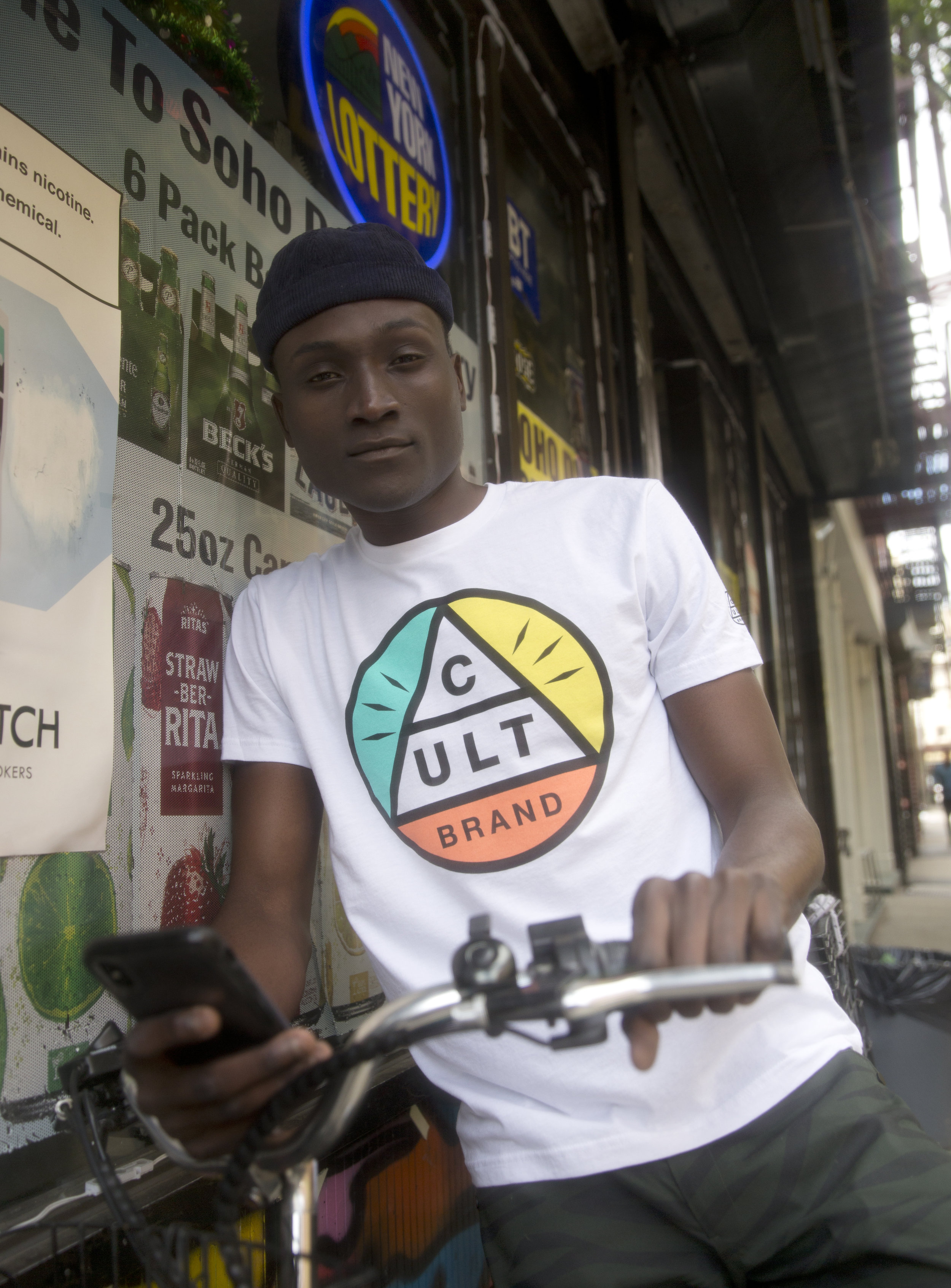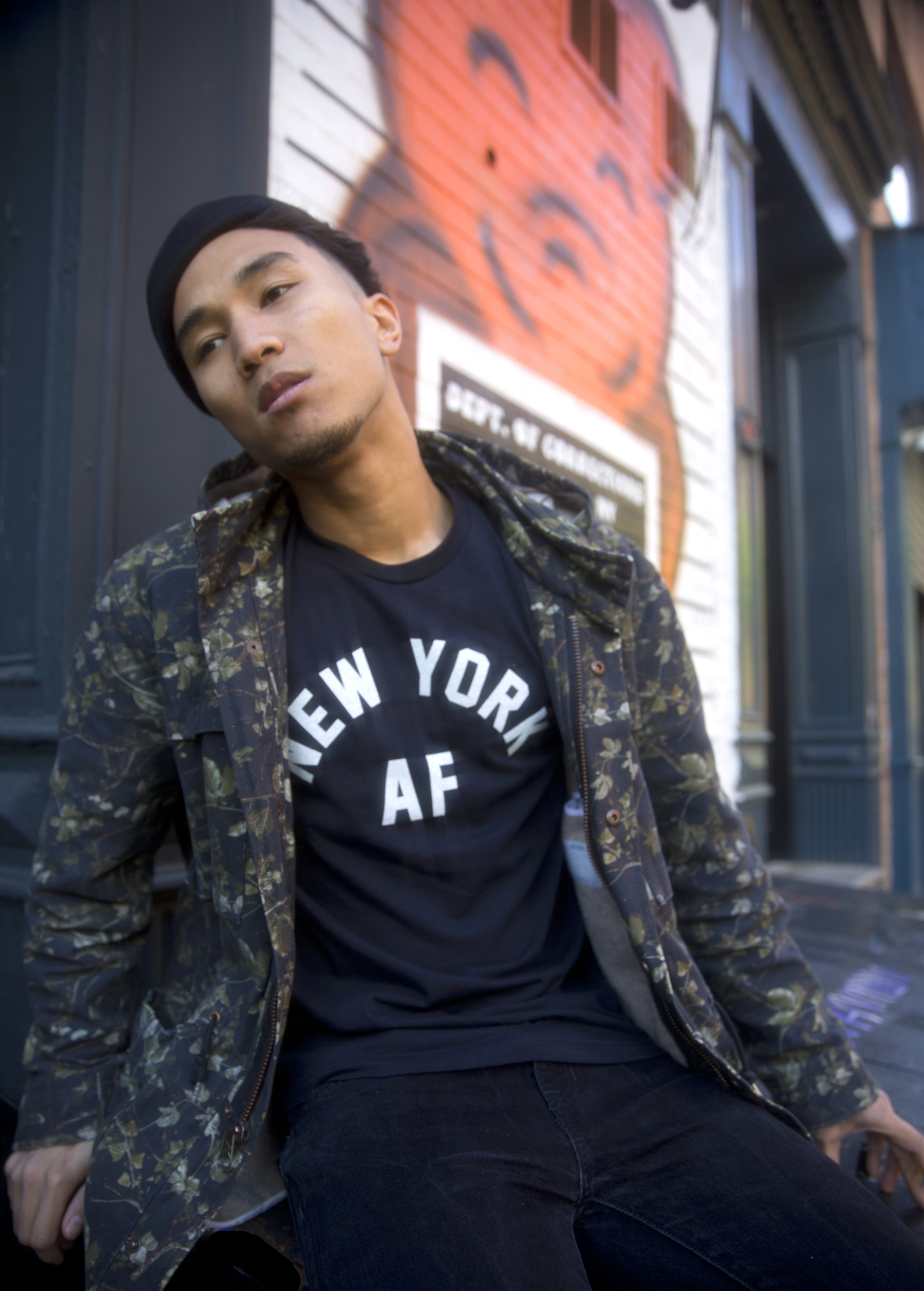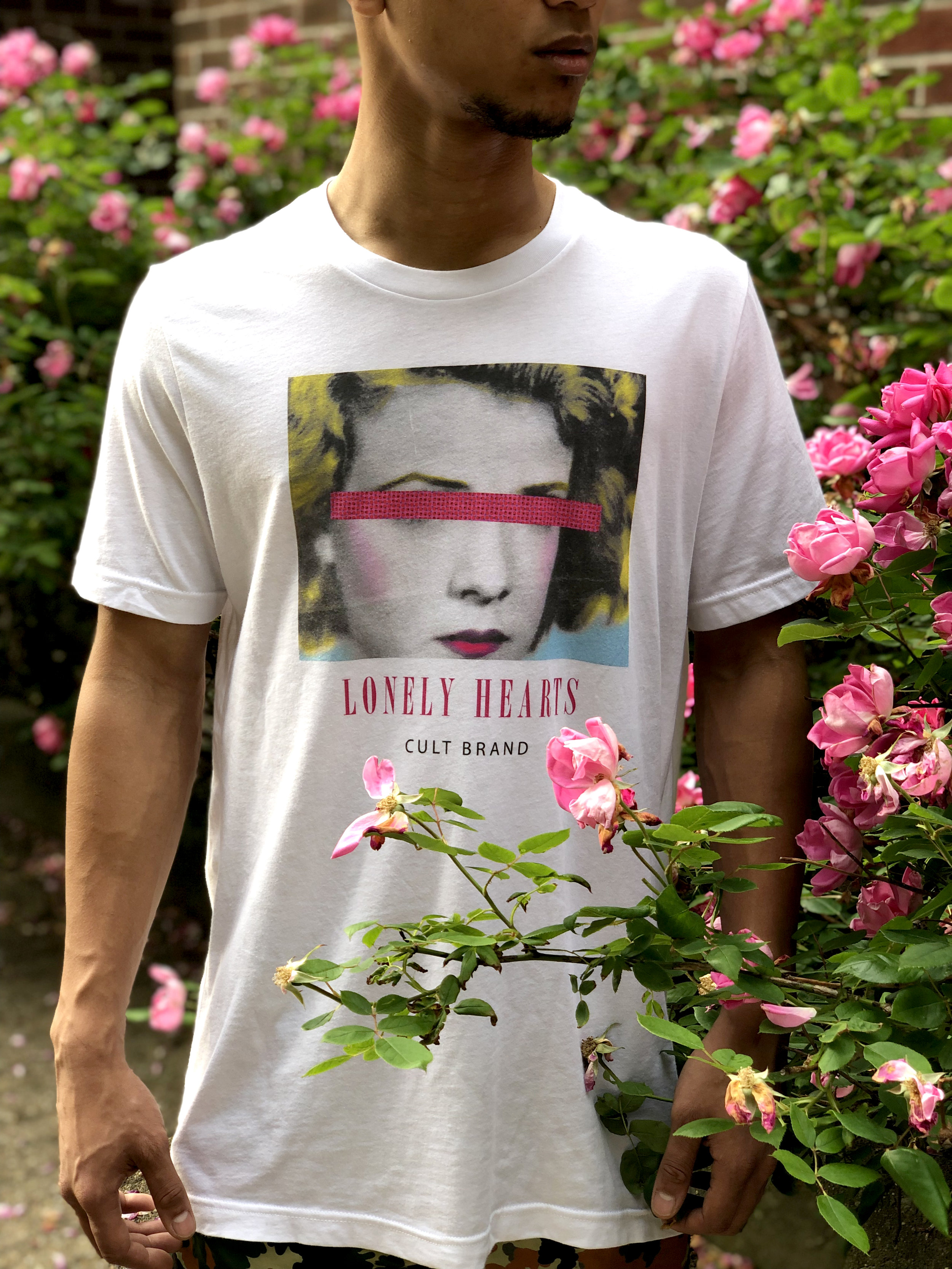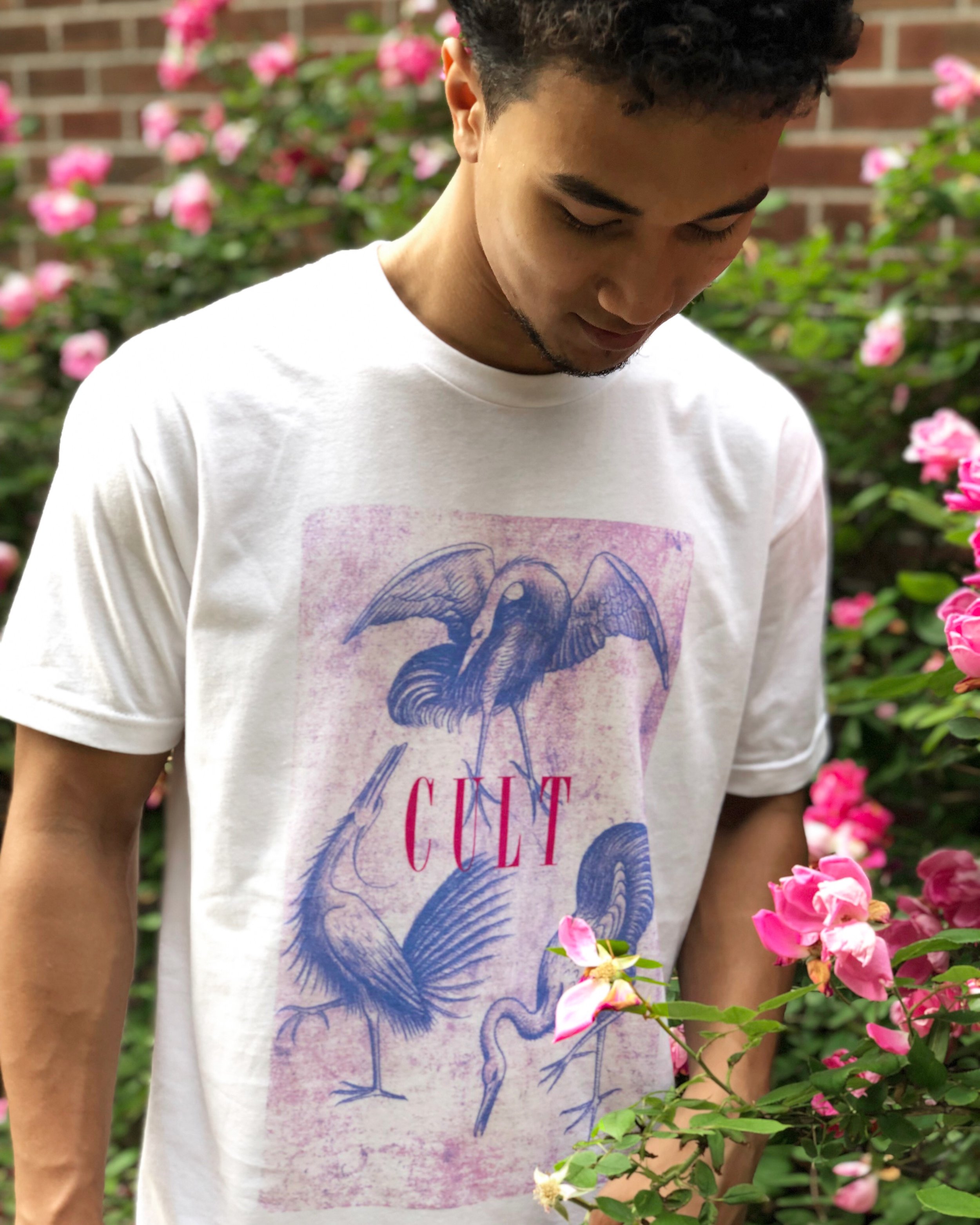Introduction and Interview by Kelsea Kosko
Speaking to Alex Nevsky of Cult Brand is almost like taking a free cultural anthropology class over the phone. His obsession with modern society, artists and their respective cliques, and humanity’s innate desire to create is the fuel that inspires him to do exactly that. Not only are his observations and interests a source of inspiration, but they even act as the premise of his entire fashion line- a brand circling around the central theme of what it means to collaborate, and how groups subconsciously birth subculture after subculture just by banding together to do what they love the most.
Kelsea: Can you tell us a little bit about your upbringing and where you’re from? What was your first creative outlet as a child or teen? Do you still utilize this outlet today?
Alex: I'm from New York, New York...(I'm a New York City public school survivor) and my first creative outlet was drawing, drawing comic strips in fourth grade with a friend of mine. As I got older I started reading comic books and began emulating those. Then I got into graffiti of course, so I was running around the city, doing graffiti on train tracks, keeping black books, and continuing to draw characters, very imaginative stuff. That's kind of the basis, or at least the original outlet for my creativity. I ended up using that talent to go to college for graphic design which I still do today. When I got out of college I was doing graphic design and advertising, but I got kind of tired of using my talents to sell toothpaste and dog food, so I went back to school and I got a degree in art business and ended up opening an art gallery to show other people's work. That actually has a lot to do with Cult Brand; my goal is to collaborate with different artists and incorporate them more than I have so far, as it's still maturing as a brand. Getting people to do all that type of stuff isn't easy of course. From my experience with owning a gallery and working with artists you get to know that a lot of them work on their own timetables, they live by their own rules, sometimes collaborations can be tough. That's just what makes them artists. They're super creative, head strong, and understandably so, they don't want to do things for commercial reasons all the time..getting that part of Cult Brand up and going is my goal. I'm always wanting to be around people who do visually creative stuff, and so that's kind of the line that runs through my life, and now it's running through my designs for Cult Brand.
Kelsea: What were you doing professionally before you launched your clothing line? How did your past work experiences influence your decision to produce a brand?
Alex: Being a graphic designer, you end up doing a lot of design for companies, whether it's freelance, or you're working for a studio or ad agency, you always want to do work for yourself at some point. Every designer dreams of their own company and their own ideas. So obviously you also have the impulse to apply your talents to fashion design, doing tees, hats, etc. And when I combine that with my past in the contemporary and fine art world, that's kind of the mixture between the design for the shirts plus the overarching idea that I would use my background in fine arts as the main theme of the work. Part of the main theme anyways. Those are the two main elements.
“Cult Brand is about expressing your niche in New York, or wherever you are. But New York is very representative of that collaboration.”
Kelsea: I love the graphics in the King O' N.Y. series. Can you elaborate a bit on your brand philosophy and how the cult theme ties in with your New York-centric aesthetic?
Alex: There's maybe a number of main parts that go into the idea of Cult Brand for me. A cult is of course a small and intense following or group of people who follow some idea or person. So for me, getting to the New York-centric part of it- New York has always been such an interesting place because you're getting all these different people from all walks of life with different ideas creating different cultures, and then their culture merges with another one, creating subcultures, and then those merge and become sub-subcultures, and that's why you have every group of people you can imagine. It boils down to all these small groups of people, whether it's your group of friends, your creative unit...whatever it is that you do, (not even having to be art based), you could have a specific niche of sports, a political idea, and NYC is made up of so many of those. That's the blood of the creativity in this city. I always loved the idea of that, and people getting together. This person likes to knit, this person likes to dye fabric, and they collaborate together on these crazy projects. I always found that kind of fascinating. Cult Brand is about expressing your niche in New York, or wherever you are. But New York is very representative of that collaboration. I was also born and raised here when the city was still a very crazy place, a crazy playground..you know, nowadays you can't run around subway tracks. If you go down there to do graffiti a SWAT Team will come and take you to Guantanamo Bay. We would bug out and explore the tunnels, and then there's tunnels under the tunnels...so I guess this is a very New York brand coming from a very New York person.
Kelsea: If you could steal a line from your favorite TV show or movie to describe Cult Brand, what would you say?
Alex: You know what, I was rewatching the first season of True Detective the other day, and Woody Harrelson is saying, "You know the good years when you're in them, or you just wait for them until you get ass cancer and realize that the good years came and went?"...you know, something's always bothering you, you're always waiting for better times, you're always going to want to do better. I always liked that idea of stopping to know the good times when you're in them. You need to be in the moment when you're doing all this creative stuff and really appreciate the process and what you're doing. Creativity is the fabric that makes up the good parts of our society.
“...nowadays you can’t run around subway tracks. If you go down there to do graffiti a SWAT Team will come and take you to Guantanamo Bay.”
Kelsea: Can you list a challenge you encountered (or currently still face) since your time spent in the apparel industry? How do you overcome and/or combat it?
Alex: Trying to find a good tee shirt printer! You know not anymore, but it was in the beginning, trying to find someone affordable within my price range. I had a hard time doing that until I was introduced to Moe [at Gridlyne]. Going forward though, I want to expand, I don't want to keep doing only tees, I want to experiment with producing some other types of apparel. That's going to require pattern making, manufacturing. I wanna do some pants, some joggers, some work shirts...but getting into doing that is complicated and I'm a little nervous about thrusting myself into that, especially with the limited time I have nowadays. Ideally I'd like to be a full fledged clothing brand at some point. But listen, t-shirts are fun, it's a canvas, if you like to design and create it's a great entry point into starting a brand.
“Sure it would be cool if ASAP Rocky was photographed wearing Cult Brand, but I get much more of a thrill from seeing someone skateboarding down Canal Street with a Cult tee, perfectly ripped jeans and some broken-in Jordan Ones.”
Kelsea: List one goal or dream you hope to achieve by the end of 2019. It can be personal or professional, or both.
Alex: Seeing as 2019 is right around the corner, I'm not so sure if anything major is gonna change by the end of the year. I would like to put my focus back into expanding my audience because I recently started working as an associate creative director for a media company, you know how starting a new job is. Learning the whole process of how everything works and operates, figuring out exactly what is being asked of you. Cult Brand has been suffering a little because of that. Before that I was freelancing; I was at home, I could work on my brand whenever I wanted to or whenever inspiration struck. Now that hasn't been the forefront of my life. Finding a balance between work, the brand, and my family would be the goal.
Kelsea: If you could style anybody, who would you choose and what would they wear?
Alex: Honestly, just your average kid on the train. I see so many kids with great original style just running around the city. It reminds me of when I was a youngin’ and everyone had their Polo, Hilfiger, Guess, etc., and you would just make it your own. That's what makes "streetwear," or whatever you want to call it, interesting; it's the organic nature in which style elements are put together by individuals. All those brands I mentioned from the 90s weren't even meant to be worn by the people that ended up wearing them, or in the ways they ended up being worn. Polo and Hilfiger were of course preppy clothing lines made for rich white folk in the Hamptons and Connecticut. NorthFace and Timberland were made for hiking and construction work. Now imagine Polo never got picked up by some kids in the hood and was made into a cultural fashion phenomenon. Where would Polo be today? These are all examples of lines that became iconic not because of celebrities or even the designers original vision—they became iconic because that kid on the subway said, "It would be dope if I took that polo and matched it with my sneakers and backpack." So, I hope you don't think this is a cop out but to answer your question: I'd much rather see my clothing styled and worn by that kid on the subway than any celebrity. Sure it would be cool if ASAP Rocky was photographed wearing Cult Brand, but I get much more of a thrill from seeing someone skateboarding down Canal Street with a Cult tee, perfectly ripped jeans and some broken-in Jordan Ones.
“Creativity is the fabric that makes up the good parts of our society. ”
Kelsea: Can you list your social media handles and website below so our readers can connect with you and purchase your clothing online?
IG: @cultaf
Shop: www.cultbrandco.com

